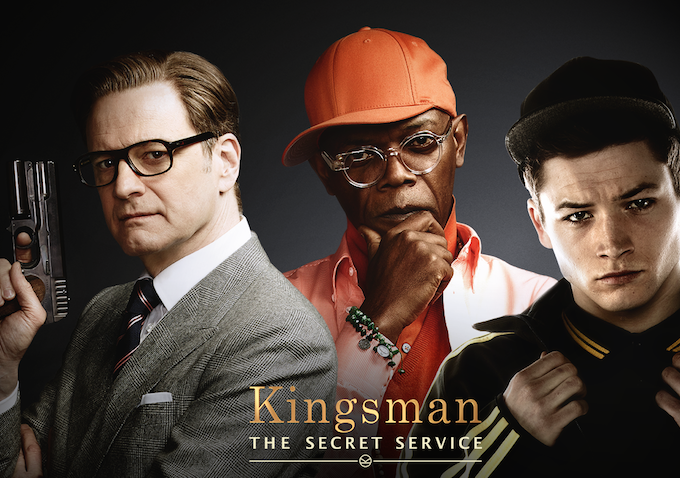 When it comes to larger-than-life comic book universes playing out on the big screen, both Henry Jackman and co-composer Matthew Margeson are the reigning champions of super hero themes and kick-ass action sounds.
When it comes to larger-than-life comic book universes playing out on the big screen, both Henry Jackman and co-composer Matthew Margeson are the reigning champions of super hero themes and kick-ass action sounds.
Kingsman: The Secret Service tells a story of a super-secret spy organization that recruits an unrefined, but promising street kid into the agency’s ultra-competitive training program just as a global threat emerges from a twisted tech genius.
While they intended to make this score their own, they still included a fair amount of hat tips to the likes of John Barry, and David Arnold. Well, Kingsman is a movie about the spy world so some things can’t be helped. It’s a trifeca of awesome, as this com-dram-actioner (and a self aware one at that) finds director Matthew Vaughn and company not just firing on all cylinders, but running on pure rocket fuel.
To get an idea of what went into this equally sophisticated and volatile score, we chatted with composers Matthew Margeson and Henry Jackman. (FYI, Henry was tied up with work so he popped in when he could. Plus we already had an extensive sit down with him to discuss Big Hero 6 and Captain America: The Winter Soldier – which you can read here – so we didn’t want to keep him from his deadlines. Henry did step back in near the end of the interview to talk specifically about the La-La Land Records release of the score).
GoSeeTalk: Thanks for taking some time with us guys. First off, congratulations on a fantastic score – it was everything fans of spy films could have asked for. I’ve been listening to it for about a week now, and per usual, it’s catchy and memorable. But I saw the screening last night and holy shit, that was just insane! I had so much fun!
Matthew Margeson: Well thank you, *laughs* it is quite a ride isn’t it? *laughs* I’m glad you enjoyed it.
Well it’s Matthew Vaughn, so you pretty much know what you’re getting into from the start right?
Henry Jackman: Exactly, there are no holds barred!
I’d like to bypass obvious questions, or ones you’ve answered plenty of times before. So stop me if anything gets routine or boring.
Margeson: Fine by me. *laughs* Go right ahead.
Matthew, you’re an American composer, Henry is British and so is Matthew Vaughn. So what do you bring to the table, culturally, as far as what you perceive a spy film to be? And how did that compare with what Henry brought to the table?
Margeson: Interesting question. I think that depends on where in the process we were because at the beginning of the movie, before we really get into the story, we are
focused on Colin Firth’s character, Harry, and finding out who he is. So there was a big push to be a little bit more traditional and be a little more “British” during those scenes. Then as the movie progresses, and the young agent comes into his own it becomes something else. This is a weird parallel that I’m about to draw, but I would say that maybe I brought to the table the same thing that the Eggsy (played by Taron Egerton) brought to the organization.
He’s a little more rugged, and a little more ‘screw the rules, let me go on a rampage and do things my way’. So while Henry, I would say, had to be a little more restrained in his orchestrations, and how we were using the orchestra, as the film develops you do go on a bit of a journey where halfway through, and especially in the last half hour, you’re not sitting properly anymore. We inserted some guitars, and synthesizers, and distortion, and a drummer banging on drums the whole time. We were a little more rambunctious with the music as opposed to the beginning. I think that kind of moves in parallel to the film when you’re watching it.
The whole first half is kind of this rite of passage and training. “This is how we order drinks”, and “this is how we sit at the table”, then, in the end, you ask yourself “when did we get here?”. So it’s not that I worked on the back half of the score more than I did the front half of the score, I think that we had a really homogeneous collaboration and Henry and I were able to pull off some really great music. I think my personality came out when I focused on the stuff that’s a little more over-the-top and rowdy.
Henry Jackman: Well I don’t want to make it seem too cut and dry, that Matthew went crazy and I played it straight, but there are definitely cultural differences, and I think that it was a really good mash-up of our styles.
Well homogeneous sounds like a really good way of describing your process and collaboration.
Margeson: Yeah it wasn’t like we just split often said “alright, I’m going to spin off and work for two weeks, you work for two weeks and then we’ll meet and play stuff over the phone”. It was the two of us really, really working together and spending hours in each other’s writing suites, making suggestions, and writing alternatives, and really testing ourselves until we thought each piece was correct. Then of course, trying to get everything by Matthew Vaughn is another story entirely.
Henry, lets go back to what Matt just said about getting cues by Vaughn. You’ve worked with him before, what’s your secret? How do you make Vaughn happy and get him to approve cues?
Jackman: Well it’s really just about collaborating with him. The funny thing about Matthew is that he’s real passionate about music. We came up with these themes early on and he really liked them because we had a really strong Kingsman theme, and a really strong Valentine theme. I was hanging around him one time and I remember, by his own admission, he said “you know, I secretly wish I had been a record producer.” *laughs*
Your question makes it sound like it was some hellish process.*laughs* Directors come in all shapes and sizes, and once they’re happy with the tone, style, and orchestration of the music, they’re happy to take a back seat, which I would say is the norm. But with Matthew Vaughn, his favorite bit, almost, is hanging around in the studio at the mixing board. He’s great in other aspects, but he is just a massive music fan and he’s always excited about who is going to do the and credit song and which studio he needs to go to the hear the latest idea.
He’s really hands on with music which is, *laughs*, something that can drive you a bit nuts, but I much rather have someone with a huge amount of passion and a really strong opinion. Now and then you’ll get a curve ball thrown at you. I remember once with Valentine, we had a really cool theme, but it was a little on the posh side, it was a little too Jerry Goldsmith. So Matthew was like “you got to get funky with it, you gotta get disco involved”. And I remember thinking Valentine, bad guy, adversary…disco?? To me, Disco is like kick drum, open hat, baselines and all that. How the hell has disco got anything to do with how we’re going to do adversary music?
So I thought, what if you take a baseline and then distorted it like crazy, and forget the drums of disco so it gives you a really gnarly rhythm that could have been a Motown rhythm. You slow it to 90 beats per minute, start playing with it, and before you know it you’re like “wow, this sounds really cool”. It’s a really good example of Matthew Vaughn meaning one thing and then, once you get past the shock of hearing it, you just trust him because the end goal is worth all the trial and error to get there. Me and Matthew Margeson just sat there on the analog keyboard having a jam session for 10 minutes to see if we can make any sense of it and make disco threatening.
Matthew Vaughn is such a driving force and his films could easily be their own genre. He brings a strong visual palette, you guys bring an auditory one, but to get there, what kind of keywords did he want to start with? Also, I know every project is different, but how closely did your initial sketches line up with the story once you started seeing the picture develop?
Margeson: Well I’ll speak about this case specifically because you’re right, every film is different, and there’s a large grey area. There’s no one way it all happens, but with Kingsman more specifically, Henry and I watched the film once or twice, and then we really didn’t even look at any frame of footage for the next three or four weeks.
We really dove into our own laboratories and really started spending time with each
other as well as a lot of time with Matthew Vaughn. He was on speakerphone 6,000 miles away in London but the three of us would just start jamming on piano, all the while recording all of our conversations. I think your question, in this case, is a good one to ask because the things that we came up, all of our original themes, all made it through the firing range with Matthew and we were able come over was the way they were presented and executed.
Henry and I both thought that this was maybe an opportunity to make a really really serious score and have the music be a juxtaposition to what is happening on screen. In the early weeks, Henry and I would send initial sketches, but the one note we kept getting from Matthew was that everything was too serious and we need to be having fun.
He told us, “No matter what is happening in the film, the audience has to be having fun and be on this roller coaster. Even when there are lulls, we are having fun and they should always be laughing with the film”. So that was our cue to re-orchestrate things, and play with the instruments, and size of the score. Now he actually really, really liked our themes. But the way they were presented definitely went through a lot of changes and variations. But coming up with how we had fun with them was something we had to nail down. We were able to move really quickly, while still chasing our tails in a way, but we had a good time with it.
I’m glad you brought that up, because that’s what Matthew’s films are known for, that fun factor. Not that there’s anything wrong with Liam Neeson or Russell Crowe and a stone-faced, cigar store Indian delivery, but that is not this kind of movie. I mean Sam Jackson, of all people, speaks with a humorous lisp, and you play to the characters like Eggsy and the way he plays by his own rules.
Margeson: Yeah, you bring up a good point Marc. This has been brought up in other interviews, not by me but by Matthew Vaughn, and we are definitely in an age now where there’s an extraordinarily abundant feeling of seriousness in all of these superhero films. It shows up in a lot of the Marvel films and of course, Nolan’s Dark Knight series. They’re all brilliant films, but this is a little bit of a different vibe for a superhero film. We don’t ever get caught in this really profound seriousness of the film which is a breath of fresh air.
What you and Henry did together was great, but I was surprisingly drawn to the source music like ‘Free Bird’ and ‘Pomp and Circumstance’ because of how important their inclusion was to the film. Both of those scenes were over-the-top, but meticulously choreographed and really help establish this as a Matthew Vaughn film. I know composers usually have little to do with the selection of those tracks, but how did you have to work around them being in the film?
Margeson: Well specifically Free Bird and Pomp and Circumstance were very, very early choices – before we ever got involved – by Matthew, some of the producers, and the editor. We all loved them in there, there was never any question, but you of course have to ask yourself “is this the best thing that can go in there?” We tried some alternatives, just to say we explored all options, especially with Free Bird. At one point we were looking at different versions on YouTube, because it is used in the Baptist
Church scene set in Kentucky, so we were looking at bluegrass versions and playing it up against the picture just see if anything would stick. Ultimately, the original EP is what we used but we deconstructed it to make our own edit of it.
Then with Pomp and Circumstance, we always knew Matthew wanted it and it was an opportunity for us to work with the visuals effects department, because everything had to be timed pretty much to the frame – 0ur tempo had to match the tempo of the heads exploding. We had to record that piece two, maybe three times, because we would record it and then all of a sudden the graphics would change and they would insert one extra head exploding. So we would go back to the drawing board and figure out how to, again, make Elgar work to these heads exploding.
Like you said, in most cases, I’m not really involved in the song choices, but in this one there was a bit of a happy medium where we came together. Also though, if you remember in Free Bird, near the end, the arrangement kind of melts into this angelic choir and piano version when Colin Firth’s character Harry comes out of his trance. So there was an opportunity for us to get involved there, but usually there’s a whole different department picking songs and getting involved with that.
Matthew, you’ve worked with Henry a lot, but you also cut your teeth in the industry working with the likes of Steve Jablonsky, Brian Tyler, and Hans Zimmer. Now there is a wonderful line in the movie where Colin Firth tells Taron Egerton that being a man is not being superior to other men but being superior to your inferior self. Or something along those lines. Looking back on your career, how do you think that your previous experiences prepared you for Kingsman, and how do you see yourself today?
Margeson: It’s a true blessing that I have been able to work with all of these A-list composers, and I was very conscious of not taking that for granted and really self-analyzing myself, and my role with each of these projects. But also learning from all of them and making my own decisions about what I loved about their process, as well as what I would change if I was in their position. I have been really conscious of that and not just view my next project as “just another job”. You can also dissect the process and experiences into a lot of different ways, not just musically.
There’s always going to be the part where you write music, but then when you have the director there, it’s all about how you present the material and deal with them personally. So it can be ‘what wine do we serve them?’ or ‘how do you relate to them if you see they aren’t reacting to the cues?’ It’s all those different things that are part of the business without being just about notes on the page. And everyone does it slightly different, but I think it’s definitely an advantage I have had whether it was orchestration, or ghost writing, or whatever you want to call it with a lot of these guys and the opportunity to be a fly on the wall means you get to watch everybody to see their fortes and their weaknesses.
Let’s jump backwards and talk about the release date push from 2014 to 2015 and why the film was rescheduled. What’s the story on that?
Margeson: Thinking back on it, and it’s all a big haze now, *laughs* it was supposed to come out in September or October. At that point, it would have been finished as far as music, visuals, ADR, color timing, etc. but I think that giving it a couple extra months meant that it could have been a little better and I think that was part of the equation. I also know that there was some other time needed for marketing with Fox and how they were approaching that. *laughs* But don’t hold me to this, I don’t know how accurate all of my
quote unquote inside information is.*laughs*
But whenever anyone tells me they’re pushing the release date my initial reaction is “that’s excellent!” because I can spend more time on this music and I can get one extra half hour of sleep per night! But I think if it were to be released when it was moved back to November or December everyone would have been fine with it but it was really to let the marketing brew.
Now that we’re in 2015, I think we have a really good weekend for it to come out. We’re up against Fifty Shades of Grey, but I think it’s not like we’re releasing in the middle of Summer where we have one good weekend and then The Avengers is going to come out. I think it’s a good time of year for something like this because it’s a little dose of comic action and we don’t usually get that in February.
I agree completely because I was just thinking about what’s on the horizon. You have Hot Tub Time Machine 2 which is a comedy, then there’s the Will Smith thriller Focus and Cinderella which is a bit of a light-hearted fantasy. So there’s a lot to choose from at the Cineplex but the Kingsmen is going to help pull people out of the Winter doldrums.
Margeson: I think so, and this is definitely the kind of there where once people start seeing it, they’ll go back with a friend. It’s already getting such good feedback from screenings and hopefully it’s going to thrive on word of mouth. Now I’m not going to say it’s for everyone, because it’s not, but it really appeals to men and women of all ages.
Like I said earlier, I had in my mind that I was not going to touch on Bond or John Barry, because everybody has probably asked you about that. However, when they specifically refer to spies like “James Bond” in the film, I thought, well, what the hell.
Margeson: *laughs* Right!
Because this is such a self-aware film, and Matthew Vaughn told you two to have fun with it, did you and Henry ever say, “ok, we’re gonna channel John Barry and we don’t care who knows it“? How did you two plan to pay homage and make nods to the genre while still making it your own?
Margeson: *laughs* Yes, it is a self-aware film and our process was pretty simple actually. We decided we were not going to steal from anyone or any composer specifically. So we said “let’s not go listen to anything. L
let’s not listen to any James Bond, the old Avengers TV show, or even the more contemporary things like Mission: Impossible or the Bourne movies”.
However, I think all of us, having seen those films, the same way you have seen Superman and you know, aesthetically, what makes up that film. We all have a place in our brain that has locked away what instruments those composers have used, and so our decision was to not do tangible physical research, but we still want to honor this genre and remind ourselves that we are in a spy film.
I think the great thing about our movie is its pace. We pick our moments, even really potent moments that, like you said, specifically reference James Bond,
to be these big head nods and references that call back to the British espionage series. But there are also many moments that are not.
So it was very easy to look at a scene, and every once in a while bring in a vibraphone, or have an alto flute playing a line, and I think that was enough to kind of say “yes we are still in a British spy film, but it’s our own take on it”. We just gave it some exclamation points and punctuation marks to remind us throughout the film. A lot of that, too, was experimenting on the stage.
We play a scene and say “alright, let’s take the brass and have all the trumpets put in Harmon mutes, or an inner cup, and see if we can inject a little bit of swank into the score”. Or, “try it once we de-tune this a little bit”. We did need that little bit of experimenting because we knew what kind of film we wanted.
Jackman: And just because you have a trumpet playing open fifths, you’re not necessarily stealing from Superman or Star Wars. But one can definitely be reminded of it because it brings you back to a certain time and place.
In the beginning of the movie, a young Eggsy gets a medallion from Harry and there’s a three key piano motif that seems to be the start of the Kingsman theme. You hear that develop further in a track like “To Become A Kingsman“. Did you find that theme later in the process and come back to the early scene, or did it all start there with those simple notes?
Margeson: We originally had a different Kingsman theme, and it is in the film, but it developed into the more in the stylistic Kingsman theme. We had an original idea for the theme which was a little more elaborate. It was more for the older generation and
Matthew was pretty adamant that we needed something for specifically Eggsy and his coming of age and to represent the new generation of Kingsman. So you’re right, we do get that for the first time when Harry gives him the medallion in the beginning. It’s the first time we meet Eggsy and it’s a whisper of that tune which ultimately becomes the new Kingsman theme.
It’s this rite of passage and the passing of the torch from the old generation to the new. We came up with that theme away from picture, and once we started writing to picture, the theme was so simple it actually worked to our advantage because it allowed us a chance to play it on strings, or on horns, and guitar and was an arrangement that was great for all these instruments to sprinkle it throughout the entire film.
Henry, you and Matthew are producers on the La-La Land release. What happens between the recording process and when CDs are on shelves? How do you go about selecting the specific tracks, assembling them and cutting them if needed?
Jackman: Well we were really lucky that Al Clay is a really good engineer and mixer. He produces stuff as well and has a record industry background, so right off the bat, the mixes of the cues for the film are already in nice shape because Al has really good instincts and he’s really sonically aggressive. Then there’s this extra layer because once you’ve delivered all of the cues for the film, now comes the CD.
If you just play every single cue that’s in the movie chronologically there are certain ones that are just so functional to what’s happening in the scene that it is not exactly right for a standalone music experience. Matt and I wanted to tailor it so the CD would keep all the essence of exactly what’s in the film. Sticking in a CD and turning up the music is a different experience to watching a film, so the few decisions we make is to select the right tracks and get the pacing right. Sometimes you just don’t need a cue because it’s similar to another one in the film.
So we edited and rebalanced the masters. I’m a real audio geek and I used to work in the record industry, so I like carrying over some of those concerns. I really get off on that final layer of tweaking and having extra maneuvers available to make the music enjoyable for people as much as possible.
I talked to Joel McNeely and he says if you listen to everything from the sessions you just get audience fatigue after about 45 minutes.
Jackman: Totally, totally agree.
Well, going back to your time working on soundtracks before you started scoring, I do want to thank you for working on the song to The Family Man with Seal. That song “This Could Be Heaven” is one of my absolute favorites.
Jackman: Oh yeah, he’s such a great writer and has a brilliant voice. He just opens his mouth and pure gold comes out! *laughs* If I could open my mouth and sound anything like that, I’d be a very happy bunny. *laughs*
The CD for the Kingsman came out on February 10th and La-La Land Records is one of the specialty labels really helping bring music to the masses.
Jackman: It’s fantastic having a niche market. But when you finish a movie, and you’re really proud of the movie music, it’s really nice to have a dedicated and committed outlet for people who are passionate about it and care about it and specialize in bringing the experience to people who want to listen to the music of the movie. It’s great to have that collaboration. It doesn’t matter what outlet, the important thing is that it’s executed well, sounds great, and is mastered great and gets out to the people who want to purchase it, then it’s all good.
Thanks to Matthew and Henry for their time. Kingsman: The Secret Service is in theaters now and the score is available from La-La Land Records. For your chance to win a copy of the score on CD, enter our contest here.
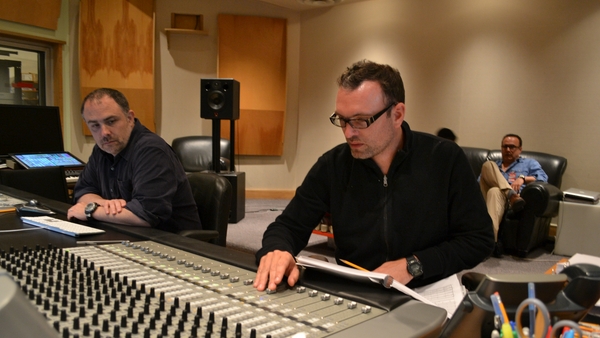
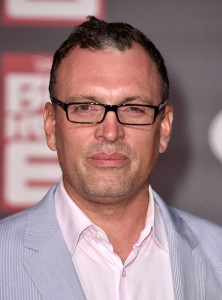
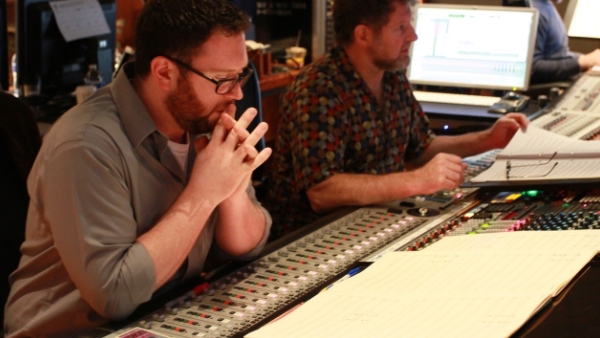
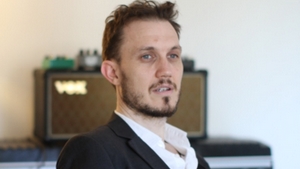
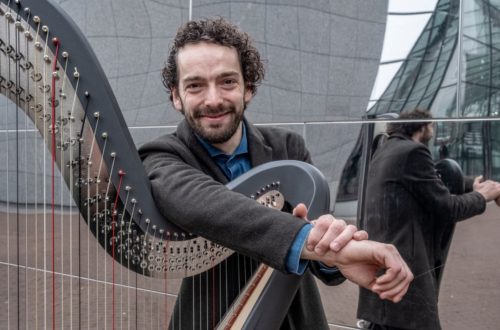
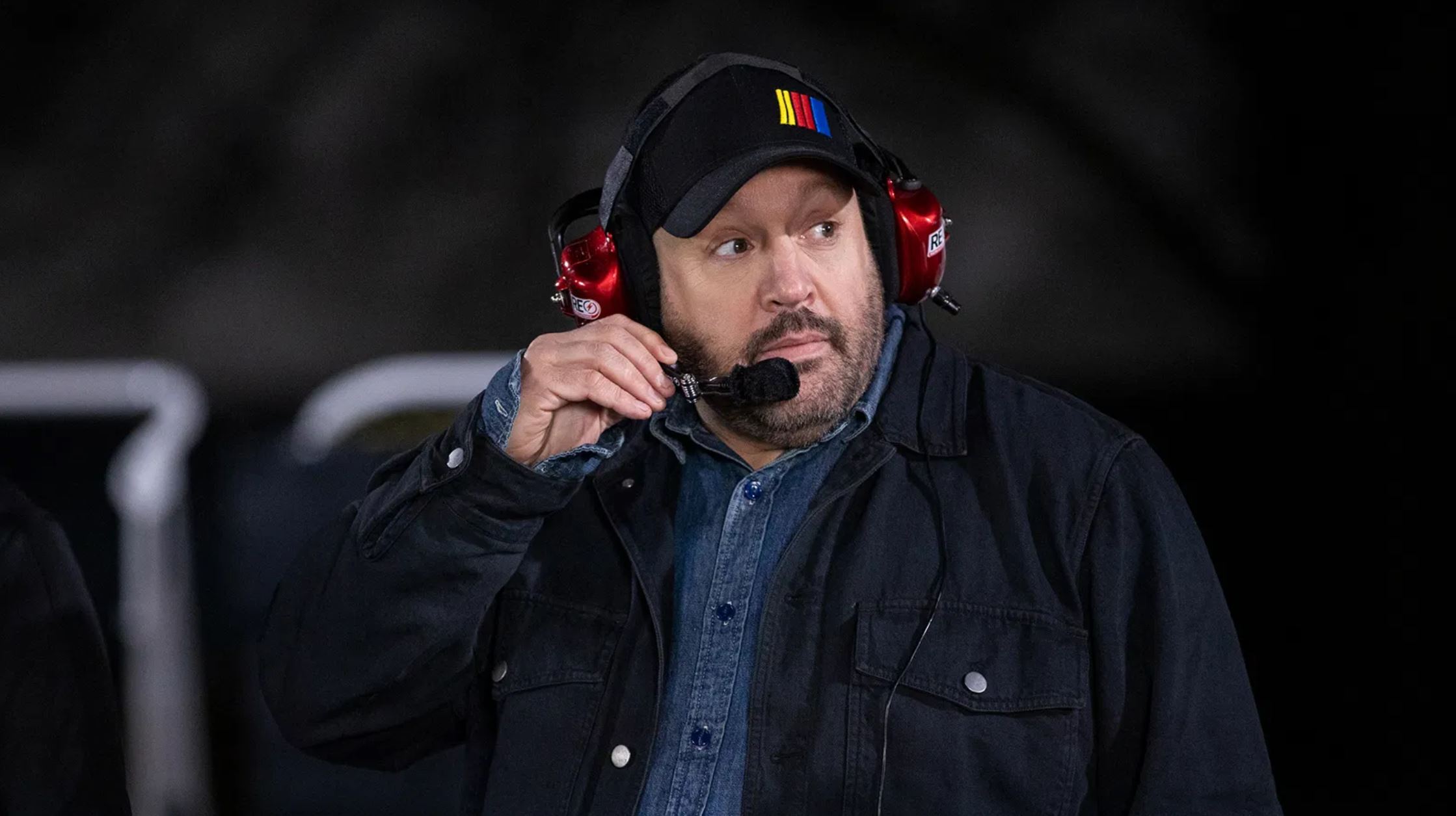
One Comment
Pingback: